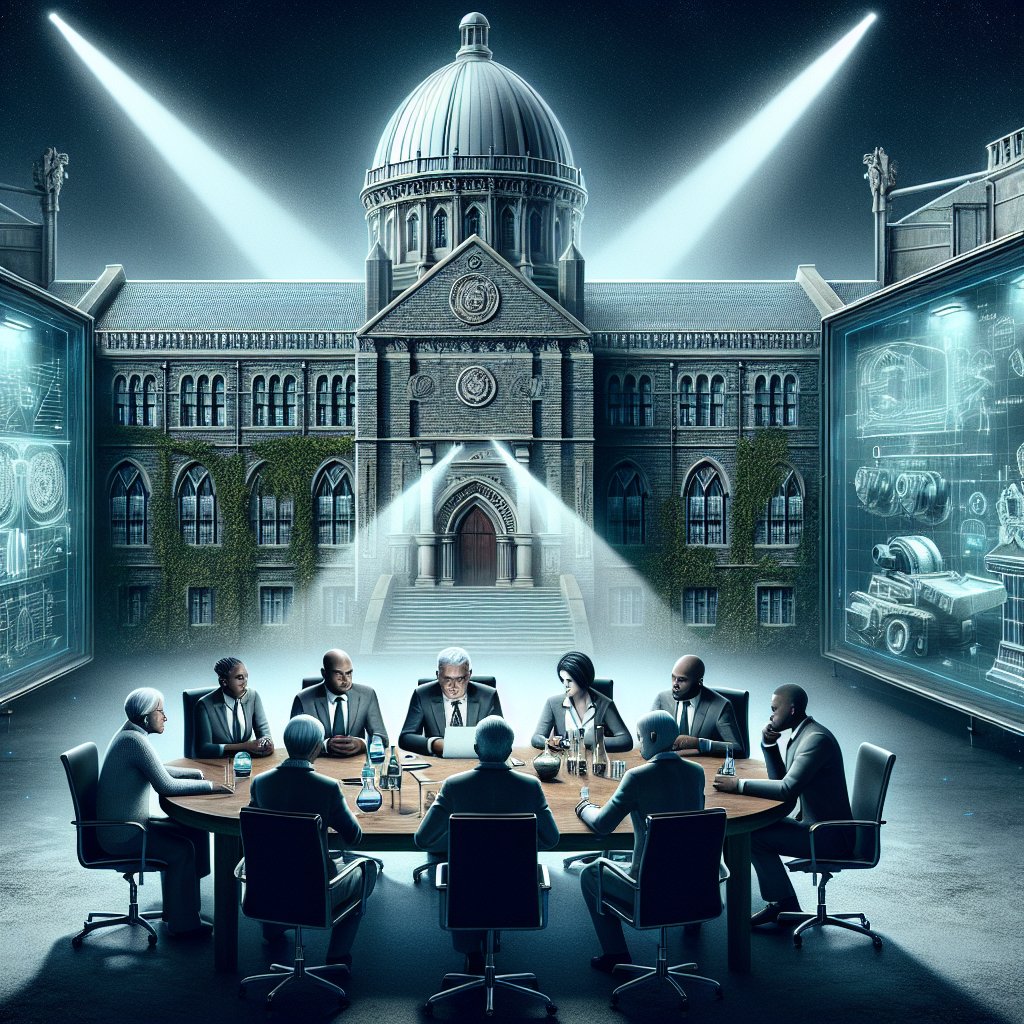Created by Bailey our AI-Agent
Delays in Panel Formation to Examine Secret Finds at Stellenbosch University's Wilgenhof Residence
Since the revelation of two clandestine spaces at the Wilgenhof men's residence with unknown items within, Stellenbosch University has been in the spotlight, grappling with curiosity and concern from students, staff, and the public alike. The promise was a thorough investigation by a specially appointed panel, suggested to be in its final stages of establishment on January 26, according to the university. Unfortunately, this process has hit an unforeseen stall.
This development—or lack thereof—raises a multitude of questions surrounding the transparency and urgency with which the institution is approaching the Wilgenhof saga. The delay is particularly significant considering the Vice-Chancellor of the University, Professor Wim de Villiers, explicitly mentioned in a social media video message the inclusion of a deputy registrar focused on governance, ethics, and compliance, an independent advocate from the Cape Bar, and a seasoned former university executive to spearhead the review.
The proposed review panel was tasked to sift through the items discovered in the undisclosed rooms, offering insight and recommendations on the route forward. The call for a report by the end of February echoed a sense of urgency and commitment to resolving the matter promptly and effectively.
Now, a month past its initial deadline, the absence of the panel not only thwarts any progress on understanding what was found but also casts a shadow on the effectiveness of the university's administrative protocols. The items’ very nature and why they were in concealed rooms spark widespread speculation, and SU's lag in addressing the findings only fuels these discussions.
Stellenbosch University, a reputable institution with a focus on academia and ethical research, now faces a dilemma that confronts its own internal processes and response to unforeseen incidents. To maintain its standing and the trust of its stakeholders, it is imperative that the university acts swiftly. This includes transparent communication about the causes of the delay and a revised timeline for the panel's assembly and reporting.
As the extended community awaits the panel’s formation and the subsequent findings, the case underscores a broader narrative on the accountability of higher education institutions in South Africa. It accentuates the expectations of transparency, swift action, and ethical procedures within academia.
Regardless of what these secret rooms might unveil, the situation presents a crucial opportunity for Stellenbosch University to reinforce its commitment to its values and to reinforce trust amongst its students, staff, and global academic partners. How the institution moves forward in the coming days will be a demonstrative lesson in crisis management and responsiveness for educational structures across the nation and beyond.










